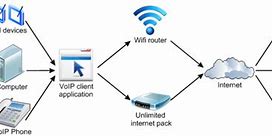
JavaScript harus aktif untuk menggunakan foursquare.com
Kami menggunakan teknologi terbaru dan terbaik yang ada untuk memberikan pengalaman web terbaik yang mungkin. Aktifkan JavaScript di pengaturan browser untuk melanjutkan.
Unduh Foursquare untuk ponselmu dan mulailah menjelajahi dunia di sekitarmu!
Jika Anda tertarik pada dunia konstruksi, infrastruktur, dan bangunan, jurusan teknik sipil bisa menjadi pilihan yang tepat. Teknik sipil merupakan…
Indonesian telecommunications company
PT Telekomunikasi Indonesia (Persero) Tbk[2] (lit. 'Telecommunications Indonesia State-owned Public Limited Company'[2]) officially shortened into PT Telkom Indonesia (Persero) Tbk, also simply known as Telkom, is an Indonesian multinational telecommunications conglomerate[4] with its corporate headquarters in Bandung and its operational headquarters in the Telkom Landmark Complex in Jakarta.[2] Telkom is listed on the Indonesia Stock Exchange and has a secondary listing on the New York Stock Exchange—the only Indonesian company, currently listed there (but not the first—the first was Indosat, which delisted from the exchange in 2013). The government of Indonesia owns over half of the Telkom's shares outstanding.[5]
Telkom has major business lines in fixed line telephony, internet, and data communications. It is operated as the parent company of the Telkom Group, which is engaged in a broad range of businesses which consist of telecommunication, multimedia, property, and financial services.[5] Since 2008, Telkom Indonesia began changing its business, focusing on infrastructure, systems, organization and human resources, and the corporate culture, in order to face the rising competition.[6][7]
After privatization in 1995, Telkom Indonesia's total consumer base grew by 7.8% in 2010 to 129.8 million customers at the end of December 2011, making the company the nation's largest telecommunication service provider in terms of subscriber count.[3]
Telkom is one of the world's oldest telecommunication companies. The company can be traced back to the establishment of the first electromagnetic telegraph service in Indonesia on 23 October 1856, by the Dutch colonial government to connect Batavia (Jakarta) and Buitenzorg (Bogor).[8]
In 1884, the Dutch colonial government founded a private company with its headquarters in Bandung to provide postal and domestic telegraph services and, later on, international telegraph and telephony services.[9]
Telephony services had been introduced to Indonesia in 1882 by privately owned companies under a 25-year government license.
In 1906, all postal and telegraph services in Indonesia were taken over by the government as a single, unified government agency named Post, Telegraph and Telephone Service (Dutch: Post-, Telegraaf-, en Telefoondienst, PTT).[8][10]
In September 1945, roughly a month after the Indonesian proclamation of independence, the agency headquarters in Bandung was taken over by Indonesian nationalists.[10]
In December 1949, after years of national revolution war, the PTT was nationalized by the Indonesian Government as part of an Indonesian effort to oust the remaining Dutch and nationalize Dutch corporate assets.[11][12]
In 1961, PTT was converted from an official government agency into a newly established statutory corporation, the Postal and Telecommunications Services company.
Four years later, on 6 July 1965, Indonesian Government separated this company into two statutory corporations; PN Pos Giro, responsible for providing mail services and PN Telekomunikasi for telecommunications services.[13] The mail services PN Pos Giro developed over the year became the Pos Indonesia in 1995, which is still state-owned today and the official postal carrier for Indonesia's population of 230 million.[10][13]
In 1974, PN Telekomunikasi was further divided into two state-owned companies. Perusahaan Umum Telekomunikasi (Perumtel) provided domestic and international telecommunications services, while PT Industri Telekomunikasi Indonesia (PT INTI) manufactured telecommunications equipment. A further division in 1980 saw the international telecommunications business taken over by the newly nationalized PT Indonesian Satellite Corporation (Indosat).[8]
In 1991, Perumtel became a state-owned perseroan terbatas and renamed to what is now Perusahaan Perseroan (Persero) PT Telekomunikasi Indonesia or Telkom. Until 1995, Telkom's operations were organized along twelve regional operating units known as Wilayah Telekomunikasi or Witel. Each Witel had full responsibility for all aspects of business and operations in their respective regions, such as telephone services, property management, and security.[8]
In 1995, Telkom reorganized the twelve Witels into seven regional divisions and one network division. Under a series of Cooperation (KSO) Agreements, Telkom transferred the right to operate five of its seven regional divisions (I, III, IV, VI, and VII) to private sector consortia. Under these agreements, the KSO partners manage and operate the regional division concerned for a fixed term, build a specified number of fixed lines which at the end of the term, transfer the telecommunications facilities to Telkom for an agreed amount in compensation. Revenues from the KSO operations were shared between Telkom and the KSO partners.[8]
On 14 November 1995, Telkom became a privatized company when their shares went on sale through an Initial public offering on the Jakarta Stock Exchange and the Surabaya Stock Exchange (which merged in December 2007 to become the Indonesia Stock Exchange). Telkom's shares are also listed on the NYSE and the LSE, the former in the form of American depositary shares (ADSs), and were publicly offered without listing on the Tokyo Stock Exchange. Telkom is now the largest company by market capitalization in Indonesia, with a market capitalization of approximately IDR 190,512 trillion as of 31 December 2009.[8][14] The Government retains an aggregate interest of 51.19% of the issued and outstanding shares of Telkom. The Government also holds one Dwiwarna, or golden share.[8][15]
In mid-1997, Indonesia was badly affected by the Asian economic crisis.[8][16] Among those impacted were certain KSO partners, who experienced difficulties in fulfilling their obligations to Telkom. Telkom eventually acquired control of its KSO partners in Regions I, III, and VI, and amended the terms of the KSO agreements with its KSO partners in Regions IV and VII to obtain legal rights to control the financial and operating decisions of those regions.[8]
Since 5 June 2014, Telkom shares are no longer traded on the London Stock Exchange ("LSE"), and since 16 May 2014, they have ceased to be registered on the Tokyo Stock Exchange ("TSE") in Japan.[17]
Telkom Indonesia Graha Merah Putih Bandung
Japati, 1, Bandung, Indonesia
PT Telkom Indonesia (Persero) Tbk (Telkom) is a State-Owned Enterprise (BUMN) which is engaged in information and communication technology (ICT) services and telecommunications networks in Indonesia. Telkom's majority shareholder is the Government of the Republic of Indonesia with 52.09%, while the remaining 47.91% is controlled by the public. Telkom's shares are traded on the Indonesia Stock Exchange (IDX) with the code “TLKM” and the New York Stock Exchange (NYSE) with the code“TLK”.
In an effort to transform into digital telecommunication company, TelkomGroup implements a customer-oriented business strategy and company operations (customer-oriented). This transformation will make the TelkomGroup organization more lean (slim) dan agile (agile) in adapting to changes in the telecommunications industry that are taking place very quickly. The new organization is also expected to increase efficiency and effectiveness in creating customer experience quality ones.
TelkomGroup's business activities grow and change along with the development of technology, information and digitalization, but are still in the corridor of the telecommunications and information industry. This can be seen from the line of business that continues to develop complementing legacy pre-existing.
From now on, Telkom has divided its business into 3 Digital Business Domains:
PURPOSE, VISION AND MISSION
To answer the challenges of the digital industry, to support national digitization and to internalize the transformation agenda, Telkom has redefined its Purpose, Vision, and Mission.
Realizing a more prosperous and competitive nation and providing the best added value for stakeholders.
To become the digital telco of choice to advance society
AMANAH Hold fast to the trust given KOMPETENContinue to learn and develop capabilitiesHARMONISCaring for each other and respecting differencesLOYALDedicated and prioritizing the interests of the Nation and the StateADAPTIFContinue to innovate and enthusiastic in moving or facing change KOLABORATIFBuilding a synergistic collaboration
Strengthen National Telecommunication Access, Build Indonesia's Digital Society
In the course of its history, Telkom has gone through various business dynamics and gone through several phases of change, namely the emergence of telephones, changes in the service organization which was the birth of Telkom, the growth of cellular technology, the development of the digital era, international business expansion, and transformation into a digital-based telecommunications company.
In 1882, the emergence of the telephone rivaled the postal and telegraph services that were previously used in 1856. The presence of the telephone made people increasingly choose to use this new technology. At that time, many private companies held a telephone business. This large number of players made the telephone industry grow faster: by 1892 telephones were in use long distances and by 1929 they were connected internationally.
1965 – The birth of Telkom
In 1961, the Government of Indonesia established the State Post and Telecommunications Company (PN Postel).
However, in line with the rapid development of telephone and telex services, the Government of Indonesia issued PP. 30 dated July 6, 1965 to separate the postal and telecommunications industries in PN Postel: PN Pos and Giro and PN Telekomunikasi.
With this separation, each company can focus on managing its own business portfolio. The formation of this PN Telecommunications became the forerunner of Telkom today. Since 2016, Telkom management has set the date 6 July 1965 as Telkom's birthday.
1995 – The Growth of Mobile Technology
Subsidiaries and investments (Telkom Group)
The "cricket ball" logo used from 1 May 1991 until 13 September 2002.
The "cricket ball" logo used from 13 September 2002 until 16 October 2009.
Logo used from 16 October 2009 until 16 August 2013.
Logo used since 17 August 2013.
Telecommunication deregulation
In 1999, Indonesia passed a deregulating telecommunication law that set in motion a sweeping array of reforms and enlivened competition policy, private investment, and long term industry direction.[16] Among the proposed reforms were the progressive elimination of the joint ownership, by Telkom and Indosat, of most of the telecommunications companies in Indonesia. This was intended to promote a more competitive market. As a result, in 2001, Telkom acquired Indosat's 35.0% stake in Telkomsel, resulting in Telkom owning 77.7% of the shares of Telkomsel, while Indosat acquired Telkom's 22.5% interest in Satelindo and its 37.7% stake in Lintasarta. In 2002, Telkom sold 12.7% of Telkomsel to Singapore Telecom Mobile Pte Ltd (SingTel Mobile), reducing Telkom's ownership of Telkomsel to 65.0%.[8]
On 1 August 2001, the Government terminated Telkom's exclusive right to provide fixed line services in Indonesia and Indosat's right to provide international direct dial services. Subsequently, Telkom's exclusive rights to provide domestic and long-distance services were terminated in August 2002 and August 2003, respectively.[8][18]
On 7 June 2004, Telkom began to provide their own international direct dial fixed line services. On 16 November 2005, the Telkom-2 satellite was launched to replace all satellite transmission services that have been served by previous satellite, Palapa B-4.[8][19]
In 2009, Telkom started transforming its business, being the only company in the field of telecommunications to transform to a broader range of business. The company expanded to telecommunications, information technology services, media and edutainment.[20] Telkom's decision to transform its business was prompted by the shift in customer lifestyles and supported by advances in technology and regulatory changes that enabled service providers to deliver enhanced service to customers.[21] With this new business transformation, Telkom also plans to conduct the acquisition of several companies that are in line with Telkom's transformation of the new business.[20][22][23]
In August 2012, the Telkom-3 satellite was lost in a launch failure, being placed into an unusably low orbit following the failure of the Briz-M upper stage of the Proton-M rocket that had launched it. Its replacement Telkom-3S successfully launched aboard an Ariane 5 rocket on 14 February 2017, 21:39 UTC.[citation needed]
In March 2019, Telkom Indonesia was one of the first Asian telco's to launch a cloud gaming service in cooperation with Gamestream.[24]
Telkom Indonesia is a dominant and largest provider of fixed line services due to owning most of Indonesia's copper network.[5] Telkom also runs telephone exchanges, trunk network and local loop connections for its fixed-line telephones. Currently, Telkom is responsible for approximately 8.3 million telephone lines in Indonesia.[5] And like most of the other state-ownership telecommunication companies in the world, Telkom is obliged to provide public services such as public call boxes.[citation needed]
Telkom Indonesia businesses are operated under government regulation by the Indonesian Ministry of Communication and Information. Telkom, as a government-owned company, is required to comply with additional obligations such as provide telecommunication services and not being discriminatory. As well as providing service in those regulated areas, Telkom has expanded into more profitable products and services where there is less government-owned-related regulation.[25]
Telkom Indonesia is the parent company of the Telkom Group, which is engaged in a wide range of businesses that consist of telecommunication, information, multimedia, property, and financial services.[5] Telkom mainly operates in fixed line telephony, internet and data communications business, while other businesses are run by subsidiaries.[citation needed]
Telkom now categorizes its portfolio into 3 Digital Business Domains:























